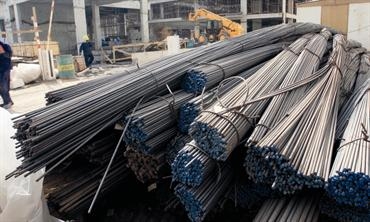Saudi Arabia has become one of the favorite destinations for the steel majors due to thriving construction sector, and soaring steel demand. The construction sector in the Kingdom is considered as the largest and the fastest growing market in the Gulf region, with a huge growth potential. As the appetite for steel is growing in the Kingdom, its production will also grow at a CAGR of around 9 percent during 2012-15, the "Saudi Arabia Steel Industry Forecast to 2013" report said.
The steel consumption in Saudi Arabia has grown rapidly in the past few years on back of rising construction activities, growing investment in railways, and cheap and reliable energy supply, the report noted. In the next five years, the Kingdom is expected to sustain its leadership in construction activities in the entire Middle East, it added.
The Kingdom showed its resilience to the downturn in the construction industry, which affected all Gulf Cooperation Council (GCC) countries, it further said. With multi-billion dollar projects underway in both public and private sectors, the Kingdom has gained a significant share in the total GCC construction spending. Also, its economy is being propelled onto a whole new level with the building of integrated economic cities.
The report moreover said the steel industry in Saudi Arabia is highly import oriented. It estimates that steel consumption in Kingdom has reached around 12.1 million metric tons in 2011. Due to such a strong demand and soaring domestic steel prices, the share of imported steel is expected to witness an upward trend in the coming years, it added.
According to Mobasher.com, Saudi Arabia has acquired 48.9 percent of operating mills in major iron and steel sector totaling 90 mills out of 184 mills in GCC region, followed by UAE by 31 percent, then rest of GCC countries with lower percentages.
Besides, Saudi Arabia has acquired 61 percent of the total of accumulated investments in this sector till 2011 amounting to $11.76 billion, compared with $19.33 billion which is the total investments of all GCC countries in this domain, followed by UAE by nearly 20 percent, then rest of GCC countries by about 19 percent.
The number of steelworks operating in GCC region has increased from 84 mills in 2000 up to 184 mills in 2011, increasing by more than half. Accumulated investments have also increased from only $2.7 billion to about $19.3 billion for the same period increasing by more than 7 times this shows that these new projects were large scale ones which required high capitals. Labor force in this industry has increased from 15.000 up to nearly 39004 for the same period, according to Industrial Management Information's (IMI) data in Gulf Organization for Industrial Consultations.
Basic metallic industries are considered one of the most important transformational industries in GCC countries where their accumulated investments till 2011, amounting to $42.4 billion account for 13.1 percent of total investments in transformational industries sector, and came second in importance preceded by petrochemical and oil refining industries which their accumulated investments accounted for 57.6 percent, according to IMI data.
GCC countries' capacities of basic iron and steel products are estimated to 20 million tons of iron ore pellets, about 2 million tons of sheets and plates, 17 million tons of longs, and about 5 million tons of pipes and tubes.
Iron and steel industry has become part of the transformational metallic industries in GCC region, since it's been the first basic industry to enter the Gulf region where the first generation stated this industry in Jeddah, through building Jeddah Steelworks in 1966 to produce reinforcement iron.
The Saudi Gazette
Jul 15























































